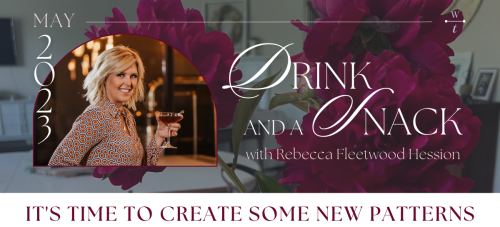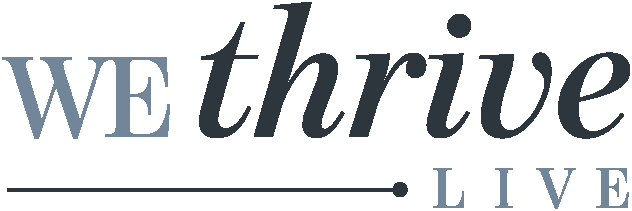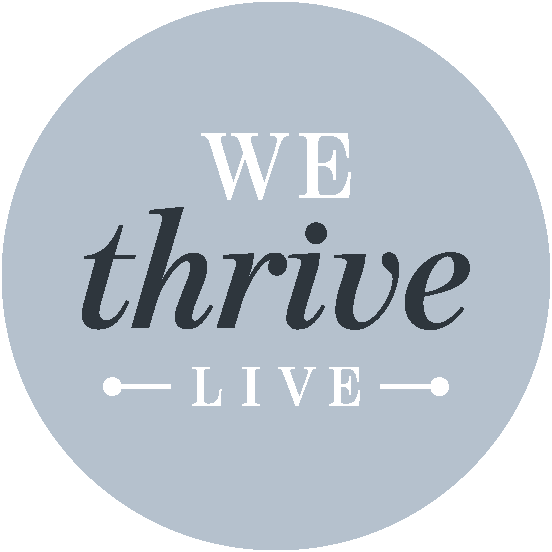As I write this for you today, I’m looking out my window at my peonies that have just bloomed, my favorite flower.
The peony is only here for a very short time, so love her well while she’s here, bring her in before it rains, and just know that a few ants on the counter are the price to pay for such a beautiful bloom. Isn’t that a metaphor for so many beautiful things in our life?
Enjoy what’s good while it’s good, take care of the things you love, and know they all come with some pesky inconveniences.
These blooms also remind me of my grandma’s house, which feels like a simpler time. I’ve come to realize that the times weren’t really simpler; I was younger and simpler, not yet exposed to the ‘work’ of the world.
I’ve been diving into the history of work deeply; so many books and videos talk about what we need to address burnout and leadership and “all the things,” but not enough talk about how we got here.
Our behaviors replay on a loop from our past, so addressing change and improvement means we have to look at the patterns we live in today. How did we get this pattern? What keeps us there?
What I’ve learned is now engrained so profoundly that I can’t “not see it” everywhere. And it goes wayyyyyyy back. Which means it’s also etched firmly into the makeup of our societal expectations and cultural norms.
Ready for the summary version?
Back in the 1900s, when we flipped from the agricultural society to the industrial society, things changed so significantly; we planted seeds of burnout that are being cultivated and harvested every generation deeper and deeper into our beliefs.
Here’s what went down.
First, some context; farms created a shared food source to make it easier for people. Nobody thrives alone, so this gave us what I call Thrive Points by living and working in community.
The Agricultural society relied on each other AND their faith. Because so much of survival was based on weather, clearly outside of our control, prayers were said, and we understood bad things could happen at any time; that’s life. Living with uncertainty was a part of life.
Everyone knew their place in the farming community. Some people grew crops, some spun yarn for fabric, some grew herbs for medicinal purposes, and everyone knew themselves and how they contributed to the community, human to human.
I’m summarizing since we don’t have a ton of time together today, but you get the gist.
Then the Industrialists said, come inside out of those elements into the factory where you’re safe. I’ll pay you every week. You won’t have to worry about so much, and you’ll always have money.
So we moved out of nature and started a life of independence over community. If you didn’t go to work on the farm, you let people down, and people suffered, maybe even died. If you didn’t go to work in the factory, you didn’t get paid. There was little understanding of how your part of the work impacted others. You were no longer working in service to one another; you were working for someone for a paycheck.
Lulled into a sense of control over connection with no need to worry about the weather and things we can’t control, a collective, independent rallying cry of “I got this.” Faith took a back seat because we believed we ruled the world.
A pattern began to emerge:
Prove Yourself
Work Harder
When we changed our education system to replicate the factory, we further deepened this pattern of independence and achievement. Helping is cheating in school, and someone else must give you the assignment and the grade.
Prove Yourself
Work Harder
This was the mantra for success. We passed it on to our children and our children’s children for the last 120 years, reinforcing this as the path to success.
Prove Yourself
Work Harder
I’ve got some bad news.
The first study on burnout was done in 1974 by Herbert Friendenberger, A German American Psychologist. He identified the 12 stages of burnout. Guess what emerged as the first two stages?
Yup.
Prove Yourself
Work Harder
What we thought was the solution is actually the problem, and now that I’ve seen this, I can’t stop seeing it and obsessing over how to flip the script on this story for all of us.
In my world of coaching and consulting with professionals, teams, and companies, we focus on a different way to live and work.
- Know Yourself so you can provide value; we call it VRI – Value, Relevance, and Impact.
- Work for Relevance and Results, then Rest, Regulate, Repeat.
The new way works, and my clients are happier and make a bigger impact. But society is still stuck in the pattern of prove yourself and work harder as a mantra of success pains me.
I lay in bed at night thinking of ways to impact more people to make this shift. If we don’t gather a few million of us together, we’re stuck with this for another 100 years. Change the education system and knock it back to 30 years.
I’m doing my part with clients, teams, companies, and now 1000 Thriving Women. I’d love you to Join the Movement. This will require MANY of us to create new patterns. We can create a ripple effect of impact for others to join us.
Who’s in?
Want to talk more about this?
Here’s a link to get on my calendar.
https://calendly.com/rebeccawethrive/30min



Leave a Reply